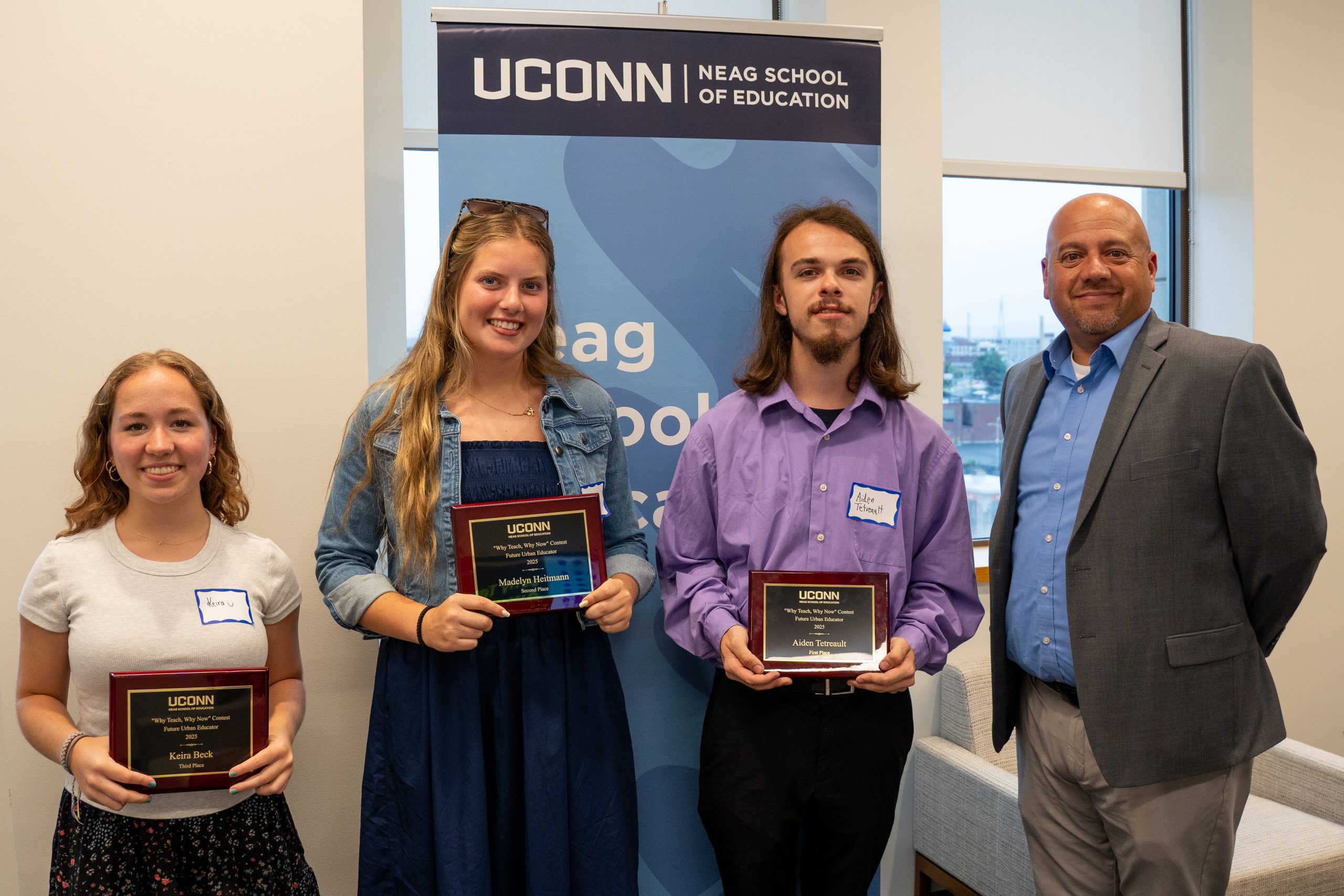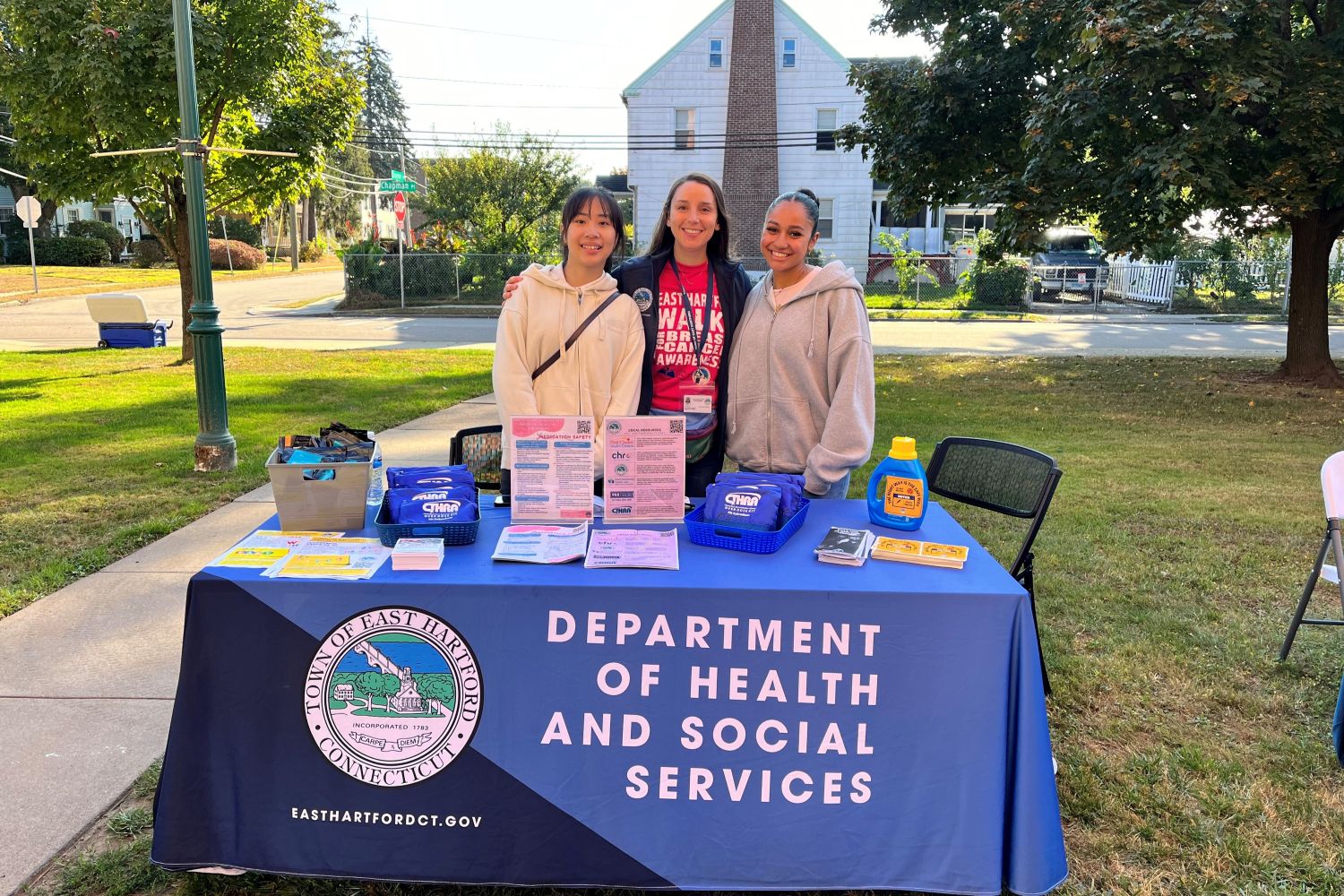Childhood obesity is a significant public health issue. Several factors contribute to a child’s risk of obesity including an unhealthy diet, excessive screen time, and lack of physical activity, as well as food insecurity and lack of access to healthy food options.
There are several ways families can address these risk factors. Valerie Duffy, UConn professor of allied health sciences in the College of Agriculture, Health, and Natural Resources, with students and collaborators, have developed a simple, online, tailored message program to encourage children to engage in healthier behaviors by identifying which behaviors children are most likely to change and providing targeted messaging about them.
This information the online pediatric-adapted liking survey (PALS) provides could inform clinical encounters, and, in a school setting, provide directions for school-wide efforts to encourage healthy behaviors.
Duffy recently published the results of two studies of PALS conducted in a pediatric clinical setting and a middle school setting in “Nutrients” and “Foods,” respectively.
PALS measures children’s likes and dislikes to measure their usual diet and physical activity patterns. The responses are used to provide tailored motivational messages with catchy wording and fun pictures encouraging children to engage in healthier behaviors such as substituting water for sugary drinks, fruit instead of sweets, and adding vegetables to meals.
“Implementation of PALS is feasible for a variety of clinical settings, takes minutes to complete, and can be completed by children aged five-18 years,” Duffy said to Physician’s Weekly.
The program also confidentially screens for food insecurity. Within a clinical setting, the program can email families information about food resources in their chosen community. In a school setting, the team works with school and community members to increase food security for all students. Importantly, the messages presented are not impacted by food security status.
“Our findings indicate that PALS and tailored messages could be useful for obesity prevention as an initial step toward encouraging children to adopt healthier behaviors” — Valerie Duffy
In both the pediatric clinical setting and school setting, up to 90% of children reported PALS was easy to complete and encouraged them to think about their behaviors. In both settings, up to 80% of children were willing to try to make the recommended healthy behavior. Importantly, neither the message type nor willingness to try the recommendations varied by the child’s weight. These findings support that PALS and tailored messages support healthy diet and physical activities for children of all body sizes.
“Our findings indicate that PALS and tailored messages could be useful for obesity prevention as an initial step toward encouraging children to adopt healthier behaviors,” Duffy said to Physician’s Weekly.
In a clinical setting, PALS encourages parent involvement in changing their children’s health behaviors. The tool identifies which behaviors the child is most willing and likely to change, giving parents a better idea of where to get started.
“Involving parents in the dialogue can promote a collaborative environment to make healthier options available and improve food choices,” Duffy said to Physician’s Weekly. “Parental involvement can also lead to more positive modeling of healthy behaviors for their children.”
Duffy adapted PALS into an online behavioral survey distributed in middle- and low-income middle schools. Undergraduate honor’s student Jessica Serrano, and graduate students Rachel Hildrey and Heidi Karner are co-authors on the paper about this research in “Foods.”
The researchers paired PALS with school-wide activities to promote heathy behaviors and the school meal program. A follow-up survey showed significant gains in healthy behaviors across the school.
Duffy plans to resume this work in the fall when schools in their target communities open again after moving to remote instruction due to the COVID-19 pandemic.
Valerie Duffy is a registered dietitian and holds a Ph.D. in nutritional sciences from UConn. Her research focuses include the influence of variation in chemosensory perception on food flavor, food preference, and consumption. Duffy is also actively involved in interdisciplinary work with community agencies to promote healthy diets and weights of children and families, particularly those who are economically disadvantaged.



